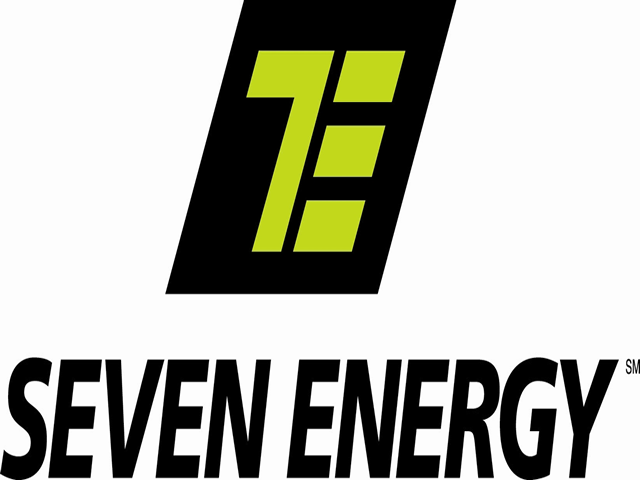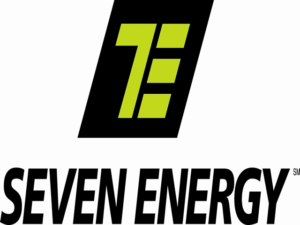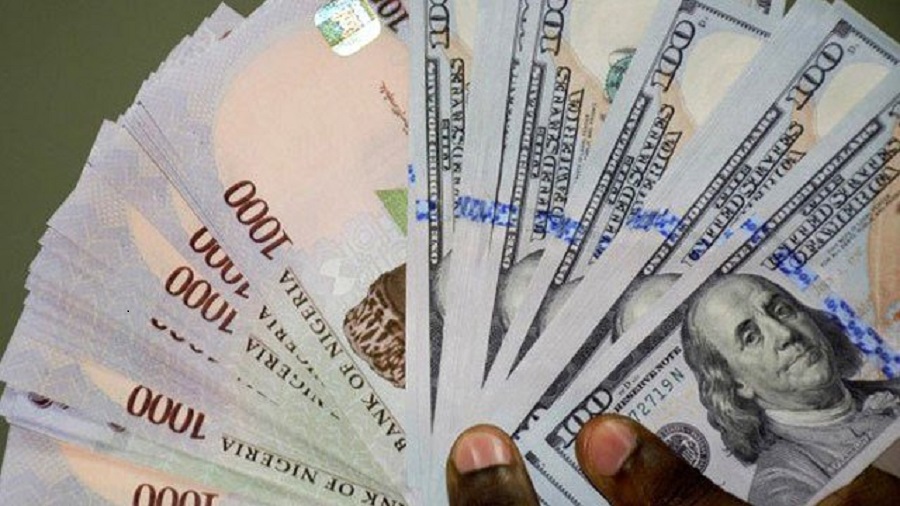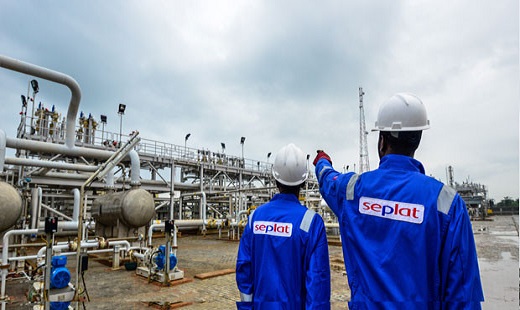Economy
Fitch Downgrades Seven Energy Int’l Ltd to ‘RD’


By Modupe Gbadeyanka
Fitch Ratings has downgraded Nigeria-based Seven Energy International Limited’s Issuer Default Rating to ‘RD’ from ‘C’ following the announcement of the results of the consent solicitation for the 10.25 percent $300m senior secured notes due 2021: 95.31 percent of the noteholders voted in favour of the proposal. Simultaneously, Fitch has affirmed the senior secured rating of wholly owned subsidiary Seven Energy Finance Limited’s $300m notes at ‘C’ with a ‘RR6’ Recovery Rating.
The accepted proposal qualifies as a distressed debt exchange under Fitch’s criteria as it imposes a material reduction in terms compared with the original ones and is conducted to avoid a payment default. Under the new terms, Seven Energy may choose to pay interest on the notes in kind, ie by increasing the principal amount of the outstanding notes or by issuing additional notes for up to four coupon payments between 11 October 2016 and 11 April 2018.
Seven Energy remains under severe liquidity pressure due to a combination of factors including: the fall in oil prices, a limited ability to convert naira into dollars, and the prolonged Forcados export pipeline closure, which has resulted in no oil lifting since February 2016. In addition to the notes consent solicitation, the company has recently agreed with the Accugas IV facility bank lenders to defer the amortisation schedule for debt payments into 2018. It is also working on a new facility with Nigerian and international banks and development finance institutions for longer-term credit facilities. Therefore the ‘RD’ rating is likely to remain until we have more clarity on Seven Energy’s post-deal liquidity and financial structure.
KEY RATING DRIVERS
Developing Natural Gas Business
Seven Energy’s management views the natural gas business in Nigeria’s southeast as an important growth driver for the company. In 9M16, Seven Energy’s average deliveries of natural gas reached 80 million cubic feet per day (MMcfpd), up from 64MMcfpd in 9M15. Its gas offtakers include three power stations (Alaoji, Calabar and Ibom), the Unicem cement plant and a fertiliser factory. In November 2016, Seven Energy completed the 69km Uquo-Creek Town pipeline to supply gas to Calabar and Unicem and signed a USD112m partial risk guarantee with Nigeria’s federal government for gas supply to Calabar and other customers.
The company is now on track to ramp up gas sales to 150MMcfpd and beyond. The installation of electricity distribution infrastructure to allow the power stations to run at full capacity has now been completed and Calabar is able to generate additional electricity.
The natural gas assets are fully ring-fenced and serve as security for the Accugas IV loan. There is a risk that the lenders may decide to enforce the security, stripping the company of its main cash generating asset and effectively forcing it into liquidation.
Strategic Alliance Agreement Halted
All Seven Energy’s oil liftings from OML 4, 38 and 41 under the strategic alliance agreement with the state-owned NPDC have been stopped since February 2016, as the Forcados oil terminal remains shut due to the rise in militant attacks. Management gives no estimate on when Forcados will be restarted and we understand is considering alternative means to export crude.
Naira Convertibility Issues
Seven Energy’s natural gas revenues are US dollar pegged but are received in naira. We understand from management that there are difficulties in Nigeria regarding exchanging naira into US dollars, which are needed to service the compay’s US dollar debt at the official exchange rate. This negatively affects the company’s liquidity as long as Forcados remains shut, meaning that the company receives no US dollar revenue under the strategic alliance agreement.
KEY ASSUMPTIONS
– Brent oil price deck of USD44/bbl in 2016, USD45/bbl in 2017, USD55/bbl 2018.
– SAA’s FCF negative in 2016; turning positive in 2017-2018.
– Natural gas sales volumes ramping up to 150MMcfpd a year in 2017 and 2018.
– Proposed restructuring implemented.
RATING SENSITIVITIES
Future Developments That May, Individually or Collectively, Lead to Positive Rating Action
– The ‘RD’ rating will be reviewed following the financial restructuring once sufficient information is available to reflect the appropriate IDR for the issuer’s post-exchange capital structure, risk profile and prospects in accordance with relevant criteria.
Future Developments That May, Individually or Collectively, Lead to Negative Rating Action
– Bankruptcy filings, administration, receivership, liquidation or other formal winding-up procedure affecting Seven Energy would result in a downgrade to ‘D’.
LIQUIDITY
Limited Liquidity
At 30 September 2016, Seven Energy’s cash on hand was USD24m, well short of the USD396m in short-term debt at this date; this amount is prior to ongoing debt renegotiations. In 9M16, Seven Energy used up nearly USD92m in cash due to high capex and interest payments, before new equity raising and debt refinancing. We understand the company is negotiating to increase the limit of its existing working-capital facility.
Economy
Investors Lose N73bn as Bears Tighten Grip on Stock Exchange

By Dipo Olowookere
The bears consolidated their dominance on the Nigerian Exchange (NGX) Limited on Wednesday, inflicting an additional 0.09 per cent cut on the market.
At midweek, the market capitalisation of the domestic stock exchange went down by N73 billion to N124.754 trillion from the preceding day’s N124.827 trillion, and the All-Share Index (ASI) slipped by 114.32 points to 194,370.20 points from 194,484.52 points.
A look at the sectoral performance showed that only the consumer goods index closed in green, gaining 1.19 per cent due to buying pressure.
However, sustained profit-taking weakened the insurance space by 3.79 per cent, the banking index slumped by 2.07 per cent, the energy counter went down by 0.24 per cent, and the industrial goods sector shrank by 0.22 per cent.
Business Post reports that 25 equities ended on the gainers’ chart, and 54 equities finished on the losers’ table, representing a negative market breadth index and weak investor sentiment.
RT Briscoe lost 10.00 per cent to sell for N10.35, ABC Transport crashed by 10.00 per cent to N6.75, SAHCO depreciated by 9.98 per cent to N139.35, Haldane McCall gave up 9.93 per cent to trade at N3.99, and Vitafoam Nigeria decreased by 9.93 per cent to N112.50.
Conversely, Jaiz Bank gained 9.95 per cent to settle at N14.03, Okomu Oil appreciated by 9.93 per cent to N1,765.00, Trans-nationwide Express chalked up 9.77 per cent to close at N2.36, Fortis Global Insurance moved up by 9.72 per cent to 79 Kobo, and Champion Breweries rose by 5.39 per cent to N17.60.
Yesterday, 1.4 billion shares worth N46.2 billion were transacted in 70,222 deals compared with the 1.1 billion shares valued at N53.4 billion traded in 72,218 deals a day earlier, implying a rise in the trading volume by 27.27 per cent, and a decline in the trading value and number of deals by 13.48 per cent and 2.76 per cent, respectively.
Fortis Global Insurance ended the session as the busiest stock after trading 193.7 million units for N152.7 million, Zenith Bank transacted 120.7 million units worth N11.1 billion, Japaul exchanged 114.8 million units valued at N407.0 million, Ellah Lakes sold 98.4 million units worth N999.2 million, and Access Holdings traded 63.1 million units valued at N1.7 billion.
Economy
Naira Extends Losing Streak, Falls to N1,356/$1 at NAFEX

By Adedapo Adesanya
A 74 Kobo or 0.05 per cent decline was recorded by the Naira against the United States Dollar in the Nigerian Autonomous Foreign Exchange Market (NAFEX) on Wednesday, February 25, trading at N1,356.11/$1 compared with the N1,355.37/$1 it was traded on Tuesday.
The Nigerian currency also further depreciated against the Pound Sterling during the session in the official market by N6.70 to settle at N1,834.96/£1 versus the preceding day’s rate of N1,828.26/£1, and against the Euro, it tumbled by N4.94 to quote at N1,598.59/€1 compared with the previous session’s N1,596.36/€1.
In the same vein, the Nigerian Naira lost N6 against the Dollar at the GTBank forex desk to close at N1,367/$1, in contrast to N1,361/$1 it was exchanged a day earlier, and in the parallel market, it traded flat at N1,365/$1.
The continuation of the decline of the local currency has been tied to the Central Bank of Nigeria (CBN) buying US Dollars from the market to slow the rapid rise of the Naira.
The apex bank bought about $189.80 million to reduce excess Dollar supply and control how fast the Naira was gaining value.
The monetary policy committee (MPC) of the CBN on Tuesday reduced interest rates by 50 basis points to 26.50 per cent from 27 per cent after inflation eased in January 2026, a move analysts say is the best not to unsettle FX market, especially the Foreign Portfolio Investors (FPI_ inflows which have anchored much of the recent supply and weakened the recently restored monetary credibility.
“The 50bps move therefore provides a clear directional signal while still keeping overall monetary conditions restrictive, indicating the start of a shallow, data-dependent easing cycle rather than a radical shift to accommodative policy,” said Mr Kayode Akindele, CEO, Coronation Capital and Head, Coronation Research in an email.
As for the cryptocurrency market, benchmarked tokens rebounded in double digits, driven by bearish positioning and thin liquidity rather than by clear fundamental catalysts, with Cardano (ADA) growing by 16.2 per cent to $0.3015, and Solana (SOL) appreciating by 12.3 per cent to $88.66.
Further, Ethereum (ETH) surged 11.9 per cent to $2,076.66, Litecoin (LTC) expanded by 11.5 per cent to $57.15, Dogecoin (DOGE) rose by 11.5 per cent to $0.1025, Binance Coin (BNB) advanced by 7.6 per cent to $629.76, Ripple (XRP) jumped 7.2 per cent to $1.45, and Bitcoin (BTC) added 6.4 per cent to sell for $68,136.72, while the US Dollar Tether (USDT) and the US Dollar Coin (USDC) remained unchanged at $1.00 apiece.
Economy
Oil Prices Stabilise as US Crude Build Counters Supply Disruption Threat

By Adedapo Adesanya
Oil prices settled largely unchanged on Wednesday amid a build in American crude stockpile and the threat to oil supply from potential military conflict between the US and Iran.
Brent futures chalked up 8 cents to trade at $70.85 a barrel, while the US West Texas Intermediate (WTI) futures settled lost 21 cents to close at $65.42 per barrel.
Crude oil inventories in the US increased by 16 million barrels during the week ending February 20, according to new data from the US Energy Information Administration (EIA) released on Wednesday.
The decrease brings commercial stockpiles to 435.8 million barrels according to government data, which is still 3% below the five-year average for this time of year.
The EIA’s data release follows figures by the American Petroleum Institute (API) that were released a day earlier, which reported that crude oil inventories rose by a massive 11.4 million barrels in the period.
The market continued to weigh the possibility extended conflict could disrupt supplies from Iran, the third-biggest crude producer in the Organisation of the Petroleum Exporting Countries (OPEC) and other countries in the Middle East.
US President Donald Trump verbally attacked Iran, saying he would not allow a country he described as the world’s biggest sponsor of terrorism to have a nuclear weapon.
This comes as US envoys are due to meet an Iranian delegation for a third round of talks on Thursday in Geneva, Switzerland.
Reuters reported that OPEC+ is considering raising its oil output by 137,000 barrels per day for April to end a three-month pause in production increases. This is as the group prepares for peak summer demand and tensions between the US and Iran boost prices.
Eight OPEC+ producers – Saudi Arabia, Russia, the United Arab Emirates, Kazakhstan, Kuwait, Iraq, Algeria and Oman – meet on March 1.
An increase of 137,000 barrels per day for April would be the same as those agreed for December, November and October last year.
In a separate development, Saudi Arabia has activated a plan for a short-term oil output and export surge in case a US strike on Iran disrupts flows from the Middle East, said two sources familiar with the Saudi plan.
Tariff uncertainty also further worried investors after President Trump’s temporary global tariff of 10 per cent took effect on Tuesday after the Supreme Court’s sweeping ruling last week. He later said the levy would be 15 per cent, but it was unclear when and if it would apply.
-

 Feature/OPED6 years ago
Feature/OPED6 years agoDavos was Different this year
-
Travel/Tourism10 years ago
Lagos Seals Western Lodge Hotel In Ikorodu
-

 Showbiz3 years ago
Showbiz3 years agoEstranged Lover Releases Videos of Empress Njamah Bathing
-

 Banking8 years ago
Banking8 years agoSort Codes of GTBank Branches in Nigeria
-

 Economy3 years ago
Economy3 years agoSubsidy Removal: CNG at N130 Per Litre Cheaper Than Petrol—IPMAN
-

 Banking3 years ago
Banking3 years agoSort Codes of UBA Branches in Nigeria
-

 Banking3 years ago
Banking3 years agoFirst Bank Announces Planned Downtime
-

 Sports3 years ago
Sports3 years agoHighest Paid Nigerian Footballer – How Much Do Nigerian Footballers Earn














